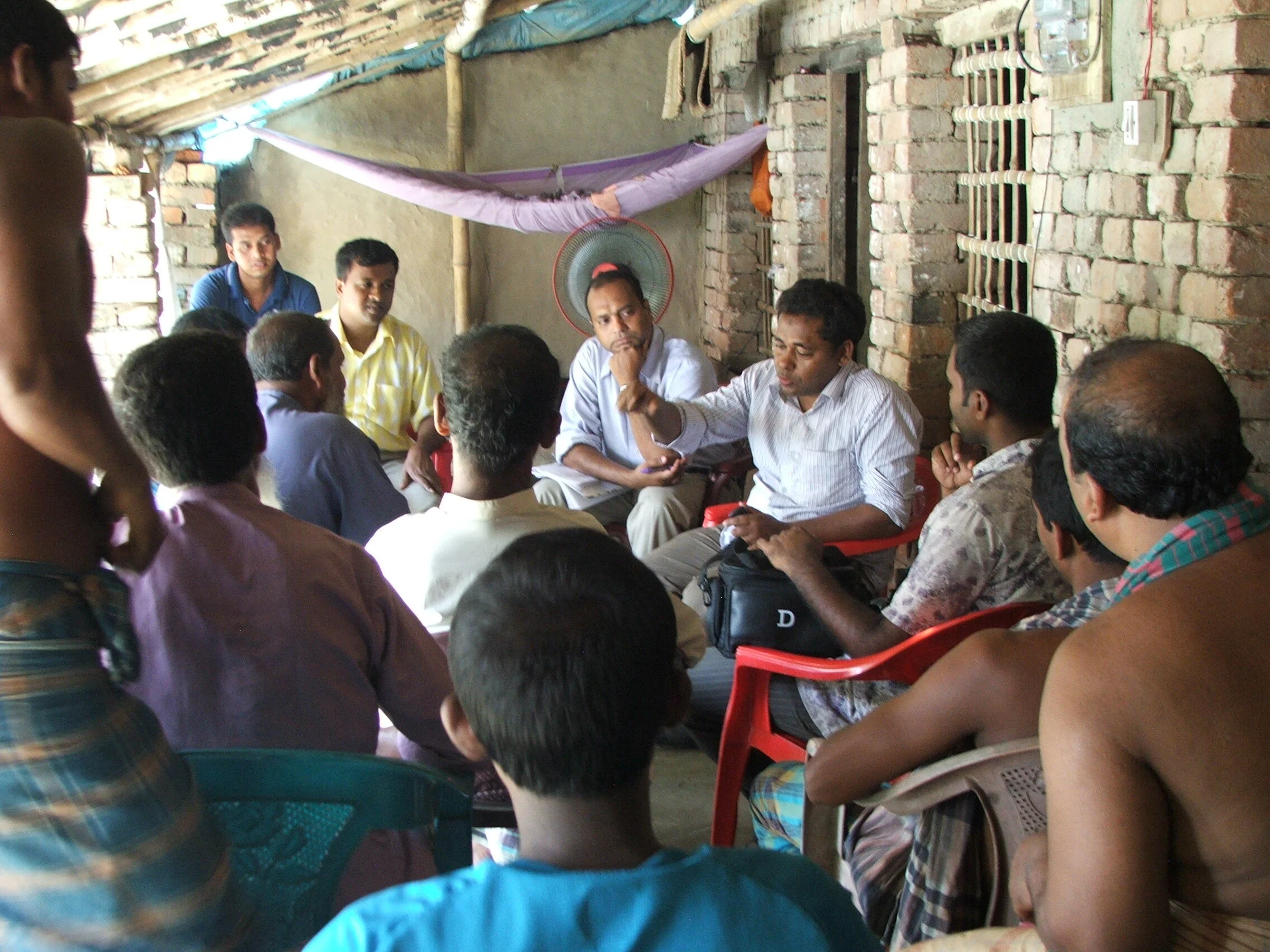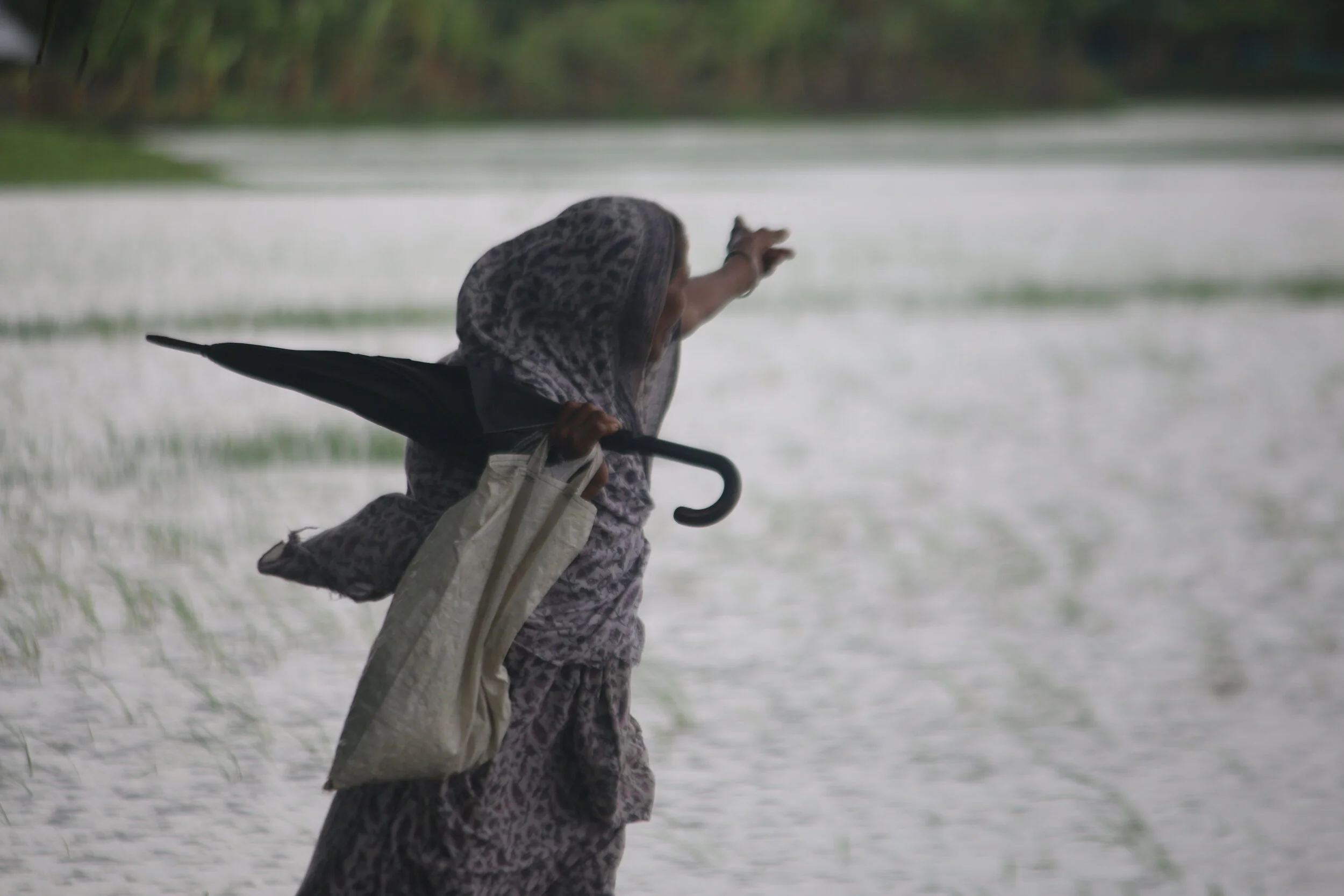Climate stresses in coastal Bangladesh: an unknown terrain of increasing tensions or possible collaborations
By Saleh Ahmed - 6th October 2019
Climate change is a reality for thousands of people living in coastal Bangladesh. People in the region are facing various environmental stresses, such as sea level rise, coastal flooding, coastal erosion, tropical cyclones, and salinity intrusion. It is very likely that in the near future, thousands of people from the region will migrate to other places as their response to adverse climate impacts.
The question remains unanswered, however, of whether this “unexpected” future will bring more evidence of collaborations among those affected or if it will cause tensions and conflicts? This could even be an issue of national policy and global governance. For the low-income resource-constrained countries like Bangladesh it is even more crucial, due to enduring poverty, dependency on climate-sensitive sectors, weak governance, inadequate infrastructure, and recurring nature of climate impacts.
In this context, climate change can act as a multiplier of existing socio-economic and political stresses. Since climate change will create stresses on existing resource-base and productivity, there could be increasing tensions and competitions among affected people. Evidence from coastal Bangladesh suggests that farmers can have lower productivity in the year of natural hazards. In addition, slow-onset events like salinity intrusion and sea level rise will likely to make the region uninhabitable. Fishing would no longer be a viable option. The people who will survive in the region will compete for their access to limited land and fishing resources. However, how far can the society stretch under climate stresses in a resource-constrained situation? And what are the thresholds for any undesirable social-economic disruptions? These questions are yet to investigate deeper to avoid any undesirable outcomes.
On the contrary, evidences of collaborations are not rare. In various geographic locations, people have collaborated to cope with environmental stresses. In the recent past, farmers in coastal Bangladesh worked together to address their farm-related challenges under the umbrella of Farmers’ Field Schools. Even though there are variations in the nature of Farmers’ Field Schools, in most cases in this format farmers discuss in a group about their farm related challenges. Often in this process, local agriculture extension agents and other development partners like NGO workers actively participate. Farmers and other development partners find this interaction useful, since this mechanism of Farmers’ Field Schools provide important basis for integrating local knowledge into livelihood decisions.
The success of Farmers’ Field Schools has inspired the Government of Bangladesh to initiate Climate Field Schools. Even though there are similarities of functions and features between Farmers’ Field Schools and Climate Field Schools, the latter focuses more on the climatic impacts on farm livelihoods. Still, both the concepts of Farmers’ Field Schools and Climate Field Schools in Bangladesh are not beyond criticisms. Current operational shortcomings and long-term sustainability of both farmers’ centric initiatives demand further empirical insights and careful interventions, so that farmers in climate vulnerable locations are better equipped with local and scientific knowledge, which can help to improve their adaptive capacity.
From a policy perspective, these insights are important. We need to create more well-functioning social, political, and economic spaces, so that people can express their concerns, challenges, needs, and ask for assistance in times of crisis. If we ignore that option, the ravages of global environmental change can be multiplied exponentially, which can reach beyond geographies, cultures, and economies.
Saleh Ahmed is Assistant Professor in the School of Public Service at Boise State University (Idaho, U.S.A). Saleh received an Interdisciplinary Ph.D. in Arid Lands Resource Sciences with a minor in Global Change from the University of Arizona (U.S.A). His research primarily focuses on climate change adaptation and resilience planning in the low-income developing societies. Email: salehahmed@boisestate.edu



